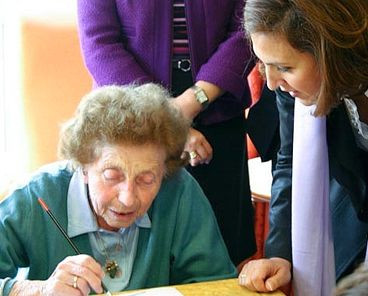Telling The Elderly That They Are Forgetful Can Make Their Memory Worse

Simply telling grandma that she forgot your birthday because she's getting older might exacerbate her memory problems. A University of California study has found ageist stereotypes about forgetfulness can reduce the cognitive performance of the elderly and has uncovered a simple trick to reverse these perceptions.
"Older adults should be careful not to buy into negative stereotypes about aging — attributing every forgetful moment to getting older can actually worsen memory problems." said lead author Dr. Sarah Barber, a cognitive psychologist at the USC Davis School.
At the core of this pattern is the idea of "stereotype threat." This is when a person changes their behavior to conform to the principles of a negative stereotype. For example, if you tell a boy that he is bad at math, he responds by not trying as hard or underperforming on his next multiplication quiz.
Prior work has shown that stereotype threats can dramatically impact the memory performance of older adults, but Barber's work suggests the key problem is how people frame aging-related declines in memory.
In her first experiment, 59- to 79-year-olds completed a memory test after reading a set of news articles. Half of the subjects were given fake news articles about memory loss in older adults, while the other half were not. All of the participants were promised a monetary reward for better scores on the memory test.
The pressure of monetary gains combined with the stereotype threat 'in the news' led to worse memory performance, with a 20-percent difference in test scores.
But in a second framework, where participants were told a bad performance would equal monetary loss, stereotype threats improved memory outcomes.
"However, our experiments demonstrate that stereotype threat can actually enhance older adults' memory if the task involves avoiding losses," said Barber.
The authors concluded that focusing on why a mental mistake was made and the negative losses connected to it, rather than simply pointing it out, can motivate the mental abilities of an older adult.
Source: Barber SJ, Mather M. Stereotype threat can enhance, as well as impair, older adults' memory. Psychological Science. 2013.



























